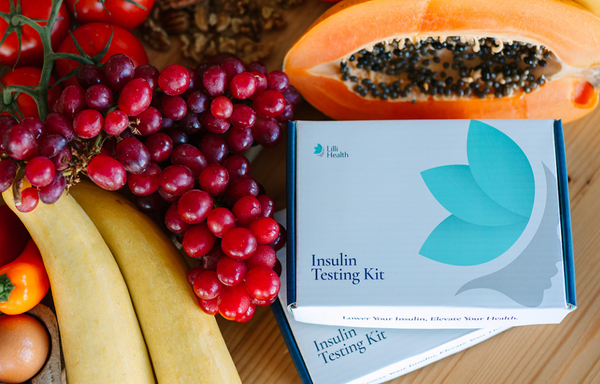

Top 7 Signs You Might Have High Insulin Levels — Even If Your Blood Sugar is Normal
Most people assume that if their blood sugar is normal, their insulin must be too. But that is not always the case. Insulin resistance can be brewing beneath the surface for years before it shows up as high blood sugar. That is why checking insulin levels is so important. If you are wondering whether high insulin could be an issue for you, here are seven signs to watch for.
1. You Feel Hungry Soon After Eating
Do you find yourself feeling hungry all the time, even shortly after eating? Elevated insulin levels can disrupt your body’s natural appetite regulation, leading to constant hunger and intense cravings, particularly for sugary or high-carbohydrate foods. This happens because insulin not only affects glucose uptake but also interferes with key appetite hormones like leptin, ghrelin, and GLP-1. Leptin signals fullness, ghrelin triggers hunger, and GLP-1 helps regulate appetite and insulin secretion. When insulin levels are high, leptin signaling may become impaired, meaning you don’t feel satisfied after meals. Meanwhile, ghrelin levels can remain elevated, making you feel like you’re always hungry, and GLP-1 may not work effectively, leading to poor appetite control. These disruptions can drive overeating and weight gain, further perpetuating the cycle of insulin resistance.
2. You Struggle With Stubborn Belly Fat
If you carry extra weight around your midsection, high insulin may be the reason. Insulin is a fat-storage hormone. When levels are too high, the body tends to store more fat, especially around the belly. This is why calorie counting does not always work for weight loss. If insulin is elevated, your body is in fat-storage mode, making it harder to burn fat no matter how much you cut calories.
3. You Find It Nearly Impossible to Lose Weight
Have you tried cutting calories, exercising more, and doing everything “right” but still cannot seem to lose weight? If so, insulin resistance could be blocking your progress. When insulin levels are high, the body resists burning fat. Instead, it holds onto weight—especially in the midsection—no matter how much effort you put in. The key to lasting weight loss is not just eating less but keeping insulin stable so your body can actually tap into fat stores.
4. You Crash After Eating Carbs
That mid-afternoon energy slump or the overwhelming urge for a nap after eating carbs could be tied to insulin. When insulin levels spike too high after a meal, they can cause blood sugar to drop quickly. This leads to fatigue, brain fog, and cravings for more sugar or caffeine to get your energy back up.
5. You Struggle With Chronic Fatigue
Do you feel constantly exhausted, even after a full night’s sleep? Chronic fatigue can be a sign of high insulin levels because your body struggles to access stored fat for energy. When insulin is elevated, it blocks your body’s ability to burn fat, leaving it searching for other sources of energy—primarily glucose. However, if your blood sugar is stable or low, your body may turn to muscle for fuel. Since breaking down muscle isn’t ideal, your body will instead slow your metabolism to conserve energy, making you feel sluggish and tired throughout the day. Essentially, your body is running low on fuel but doesn’t want to burn muscle, so it’s like it’s pressing the “pause” button, leaving you craving naps and feeling drained.
6. You Notice Skin Changes
High insulin levels can show up on your skin in several ways. Skin tags, especially around the neck and underarms, are common in people with insulin resistance. Dark, velvety patches of skin called acanthosis nigricans often appear on the neck, underarms, or other skin folds. Some people also experience increased acne, excessive oil production, or stubborn breakouts that do not improve with typical treatments. Insulin resistance increases inflammation, which can worsen skin conditions like rosacea, psoriasis, and eczema.
Chronic inflammation can also result in collagen damage—a key protein responsible for keeping your skin firm and youthful. Over time, this collagen damage becomes irreparable, leading to premature skin aging, including fine lines and wrinkles. This combination of accelerated skin aging and breakouts is a direct consequence of prolonged, unchecked insulin levels. If you’re noticing early signs of aging or more frequent acne flare-ups, high insulin could be a contributing factor.
7. You Have Irregular Periods or Fertility Struggles
For women, high insulin can throw hormones out of balance and directly impact ovulation. Many women with insulin resistance experience irregular cycles, missed periods, or difficulty ovulating. If ovulation is not happening consistently, getting pregnant becomes much harder.
Even when conception occurs, high insulin can affect implantation and increase the risk of miscarriage. Insulin resistance is linked to inflammation, poor egg quality, and a higher chance of failed embryo transfers during fertility treatments. It also impacts the placenta, increasing the risk of complications in early pregnancy.
What Can You Do?
If any of these signs sound familiar, it is time to check your insulin levels. A fasting insulin test or a two-hour insulin test can give you a clearer picture of what is happening. The good news is that insulin resistance can be reversed with the right approach. Lowering insulin levels is not about cutting all carbs or slashing calories. It is about choosing the right foods, eating in a way that keeps insulin stable, and making small changes that work long-term. This way of eating is called a Low Insulin Lifestyle.






















